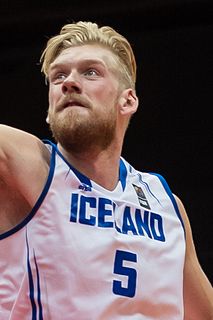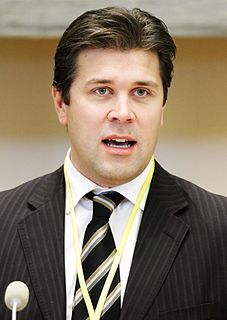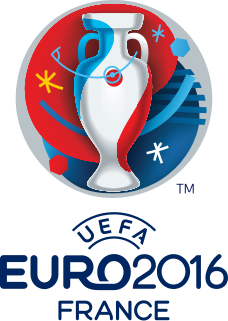Jakob Örn Sigurðarson is a professional Icelandic basketball player for the Swedish team Borås Basket. He was named the Icelandic men´s basketball player of the year in 2011.

Jón Arnór Stefánsson is an Icelandic professional basketball player who plays for KR of the Domino's League, and a former member of the Icelandic national team. He won the FIBA EuroCup title in 2005 with Dynamo Saint Petersburg. He was a member of the NBA's Dallas Mavericks from 2003 to 2004, but he spent the whole season on the injury list and never played a regular season or playoff game with them.

An election for the office of President of Iceland was planned to be held in Iceland on 28 June 2008. The incumbent Ólafur Ragnar Grímsson, first elected in 1996, stated in his New Year's speech that he would contest the election for a fourth term. Ástþór Magnússon, who ran unsuccessfully in 1996 and 2004, ruled out a candidacy. No challenger to the incumbent president filed by the deadline to declare a candidacy on 24 May 2008, and so Ólafur Ragnar's fourth term was won uncontested. He was sworn in on 1 August 2008.
Ágúst Þór Jóhannsson is an Icelandic team handball coach and a former player.
Einar Árni Jóhannsson is an Icelandic professional basketball coach who is currently the head coach of Úrvalsdeild karla club Njarðvík. He won the Icelandic men's championship in 1998 with Njarðvík as an assistant to Friðrik Ingi Rúnarsson, and in 2006 as Njarðvík's head coach. He won the Icelandic Men's Basketball Cup in 2005 with Njarðvík and was named the Úrvalsdeild karla Coach of the Year in 2007.
The 2015 Úrvalsdeild karla, also known as Pepsi-deild karla for sponsorship reasons, was the 104th season of top-flight Icelandic football. Twelve teams contested the league; the defending champions were Stjarnan, who had won their first ever league title in 2014 going unbeaten in the league.

Ragnar Ágúst Nathanaelsson is an Icelandic basketball player for Valur of the Icelandic Úrvalsdeild karla. He participated at EuroBasket 2015 as a member of the Icelandic national team.
Baldur Ágústsson is an Icelandic businessman, who ran for president of Iceland in 2004 and 2016.

Guðni Thorlacius Jóhannesson is an Icelandic politician serving as the 6th and current President of Iceland since 2016. He took office after receiving the largest number of votes in the 2016 election, 71,356 (39.1%). A historian, he was a docent at the University of Iceland until his election. His field of research is modern Icelandic history, and he has published a number of works on the Cod Wars, the 2008–2011 Icelandic financial crisis and the Icelandic presidency, among other topics.

Parliamentary elections were held in Iceland on 28 October 2017. On 15 September 2017, the three-party coalition government collapsed after the departure of Bright Future over a scandal involving Prime Minister Bjarni Benediktsson's father writing a letter recommending a convicted paedophile have his "honour restored". Bjarni subsequently called for a snap election, which was officially scheduled for 28 October 2017 following the dissolution of the Althing.
Helena Sverrisdóttir is an Icelandic professional basketball player for Valur of the Icelandic Úrvalsdeild kvenna. Helena has been named the Icelandic Women's Basketball Player of the Year 11 times. She has won the Icelandic championship three times and the Slovakian championship two times.
The 2017–18 Úrvalsdeild karla is the 67th season of the Úrvalsdeild, the top tier men's basketball league in Iceland. The season started on October 5, 2017 and ended on April 28, 2018. KR won its fifth title in a row by defeating Tindastóll 3–1 in the Finals.
The 2017–18 Úrvalsdeild kvenna was the 61st season of the Úrvalsdeild kvenna, the top tier women's basketball league on Iceland. The season started on October 4, 2017 and concluded on April 30, 2018, with Haukar winning their fourth title after beating Valur 3–2 in the Úrvalsdeild finals. Helena Sverrisdóttir was named the Playoffs MVP after averaging 20.2 points, 12.2 rebounds and 10.8 assists in the finals series.

The next Icelandic parliamentary election to elect members of the Althing will be held no later than 23 October 2021.
Heimir Guðjónsson is an Icelandic football manager and a former member of the Icelandic men's national football team. He is currently the manager of Havnar Bóltfelag. As a manager, he won the Icelandic championship five times with FH.
The 2018–19 Úrvalsdeild kvenna is the 62nd season of the Úrvalsdeild kvenna, the top tier women's basketball league on Iceland.
Garðar Örn Hinriksson is an Icelandic former football referee. He was a FIFA listed referee from 2004 to 2009. He was named the Úrvalsdeild karla Referee of the Year in 2004, 2006 and 2007.
The 2018–19 Úrvalsdeild karla is the 68th season of the Úrvalsdeild karla, the top tier men's basketball league in Iceland.

Ragna Margrét Brynjarsdóttir is an Icelandic basketball player, who last played for Stjarnan in the Icelandic Úrvalsdeild kvenna, and a member of the Icelandic national basketball team. She won the Icelandic championship in 2007 and 2009 as a member of Haukar.
Daníel Guðni Guðmundsson is an Icelandic basketball coach and a former player. He is currently the head coach of Grindavík of the Icelandic Úrvalsdeild karla.



















